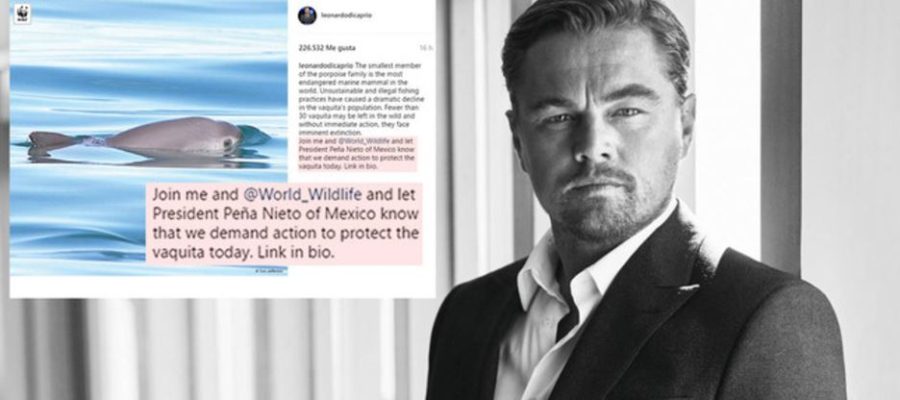In response to campaigns by the World Wildlife Fund, Leonardo DiCarprio Foundation and other groups, the Mexican government has made commitments towards saving the endangered Vaquita species from extinction.
Recently, Mexican president Enrique Pena Nieto, Billionaire Carlos Slim and actor Leonardo DiCarprio met to sign a memorandum of understanding which will introduce efforts that will save the animals which could become extinct next year according to researchers. Last month DiCaprio launched a campaign on twitter which was aimed at spurring officials of the Mexican government into taking steps to protect the species, this move made the president declare that the country was committing “all its efforts to prevent the extinction of the species”.
The world seeks for capable people in power to deal with issues of environmental conservation and climate change. In a statement released by DiCaprio after the meeting on Wednesday “this action is a crucial step towards ensuring that the Gulf of California continues to be both vibrant and productive, especially for species like the critically endangered Vaquita.” Vaquitas are one of most endangered species in the world, with less than 30 surviving. A special ban on fishing nets which accidentally catch this species and its enforcement is covered in the memorandum.Rena Nieto said “Mexico is one of the countries that have great biodiversity, which is why we have implemented plans to avoid the extinction of unique species in the world.”
Groups including the WWF rejoiced about the news. The WWF along with DiCarprio had started a campaign calling for the conservation of Vaquita last month. The call was supported by more than 200,000 people.
In a statement released by the group, it said “Today’s agreement marks a key step forward in the fight to save the critically endangered Vaquita and ensure a sustainable future for the people and wildlife of Mexico’s Upper Gulf of California”
Nicknamed “pandas of the high sea”, the Vaquitas Population has decreased in recent years as a result of fishing operations that are illegal at the Mexico’s Gulf of California which is their habitat.
Fishing for another endangered fish species, the Totoaba has also led to the capture of the Vaquitas in large gillnets. The Totoaba swim bladders can sell for about $10,000 per kilogram in black markets in some areas of Asia.
Efforts have been put in place by the Mexican government, conservationists and scientists to save the Vaquita with the intention to breed them in captivity. This is a new method and it is feared that it may kill instead of save the Vaquitas. However, the WWF has recommended that the species should be returned back to their natural environment once the population recovers.
In a statement, the group said “WWF believes that any effort to capture and provide sanctuary for the remaining Vaquitas and breed them in captivity must be explicitly linked to a plan to return Vaquitas to the wild once their habitat is secure.”

